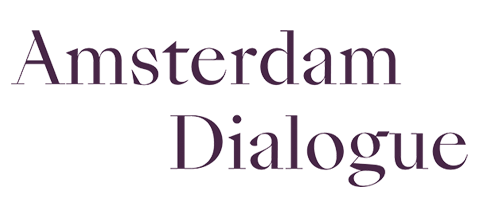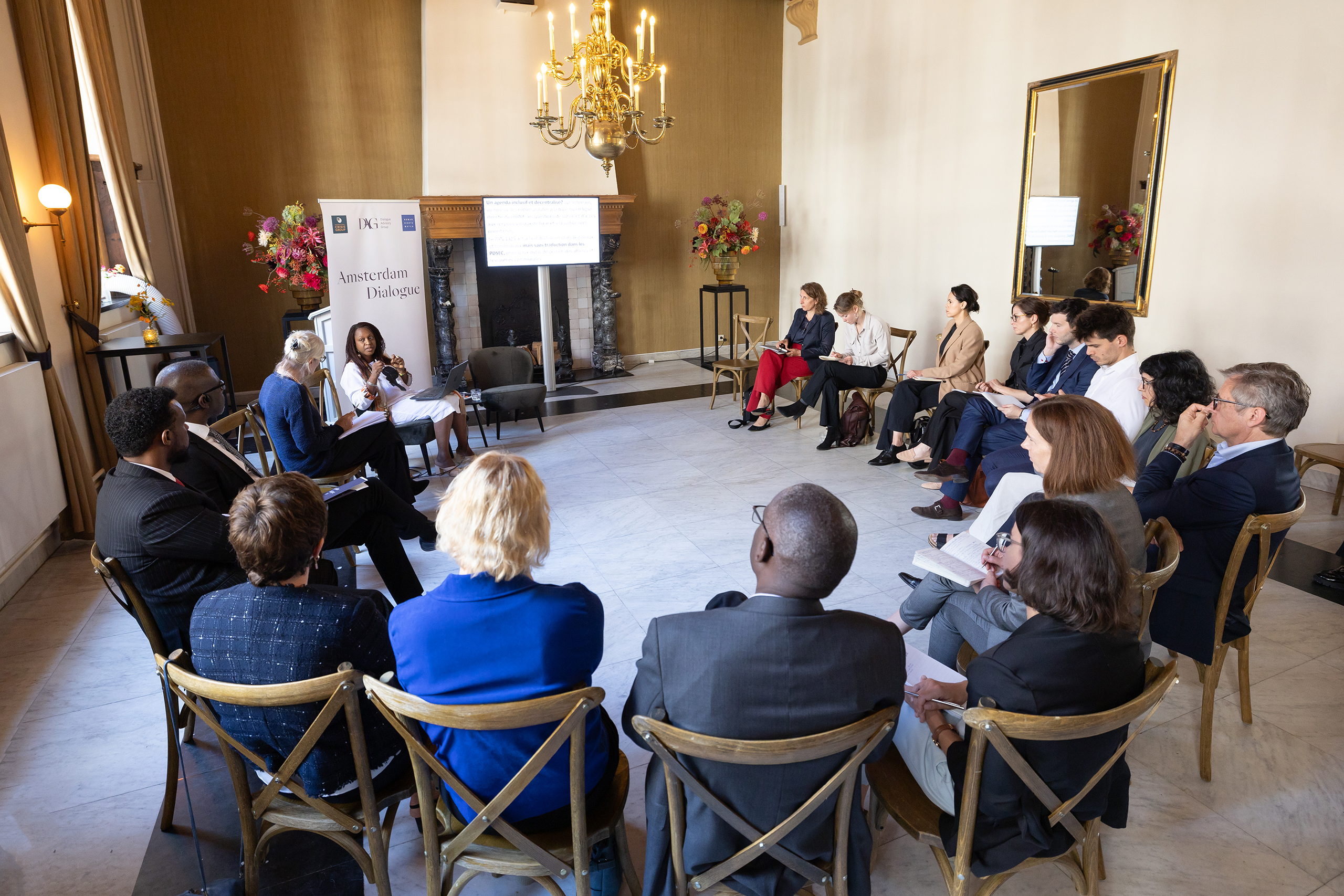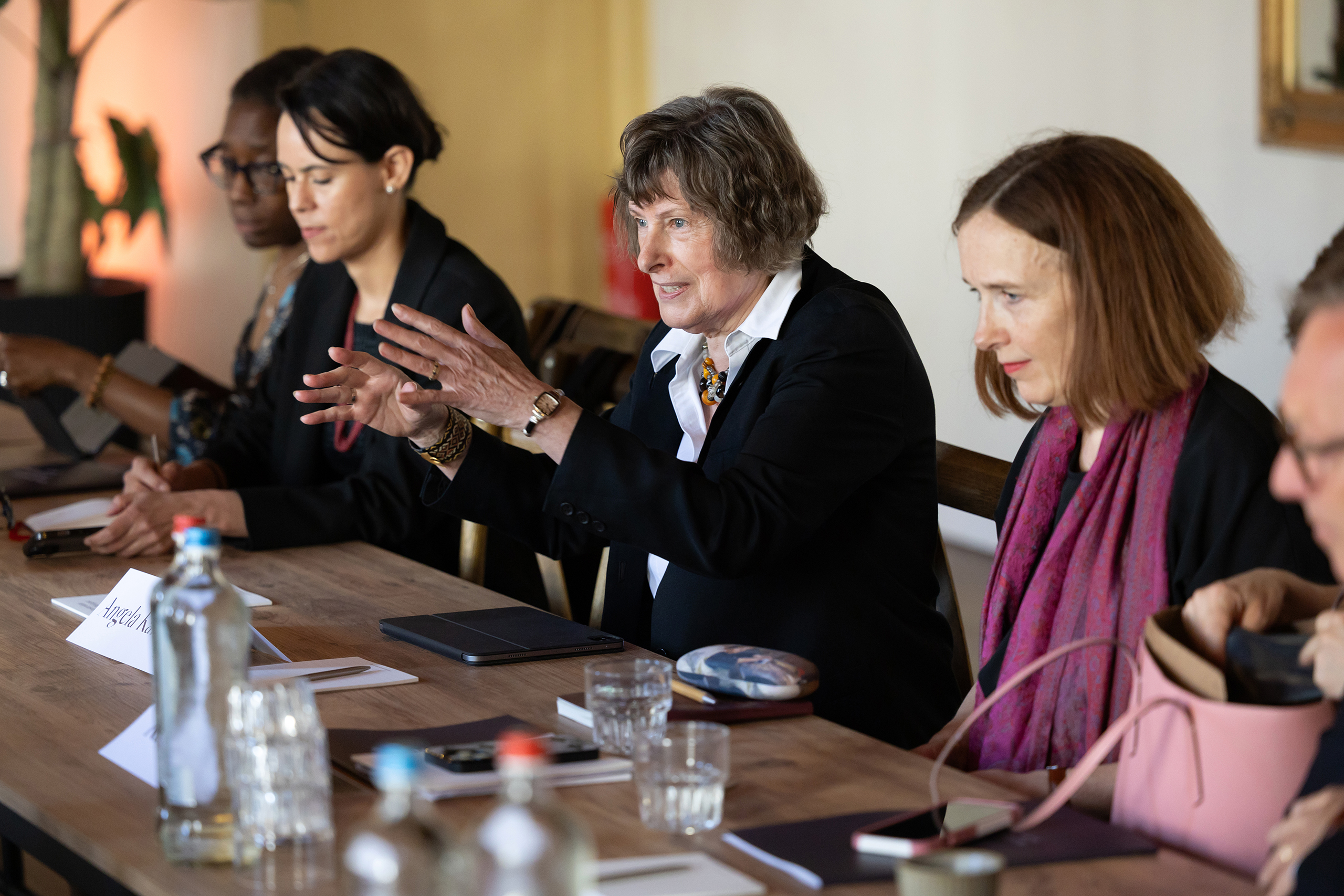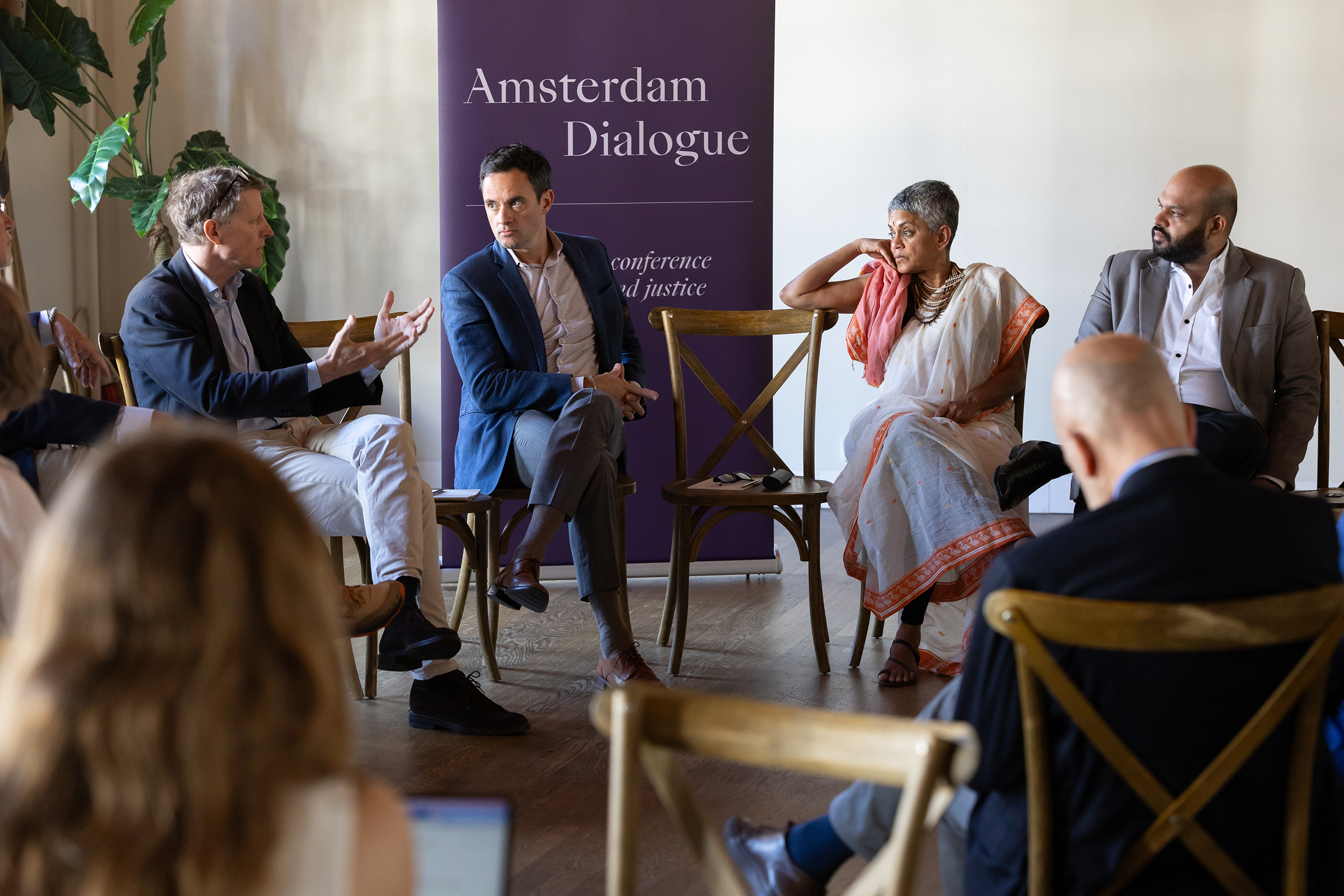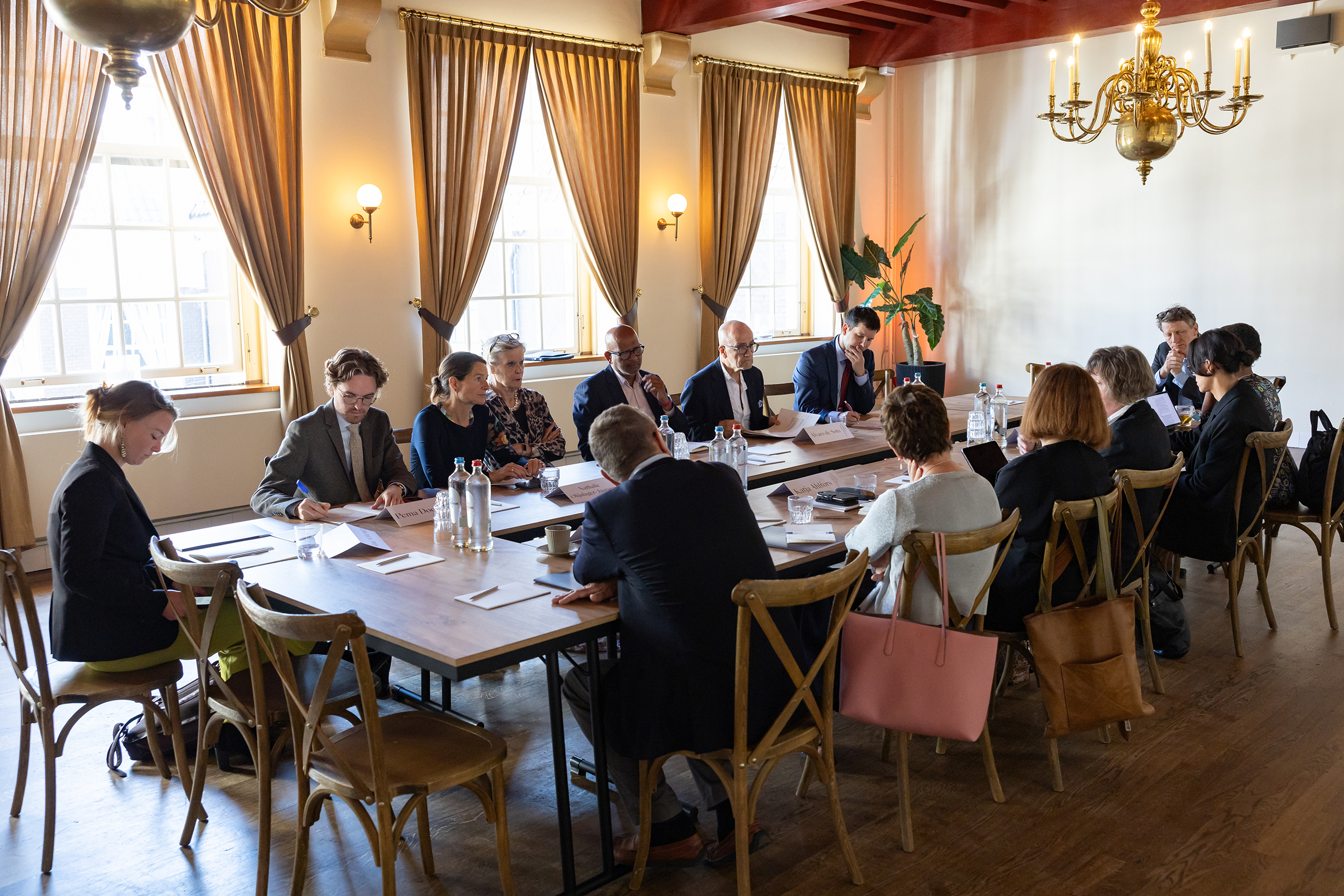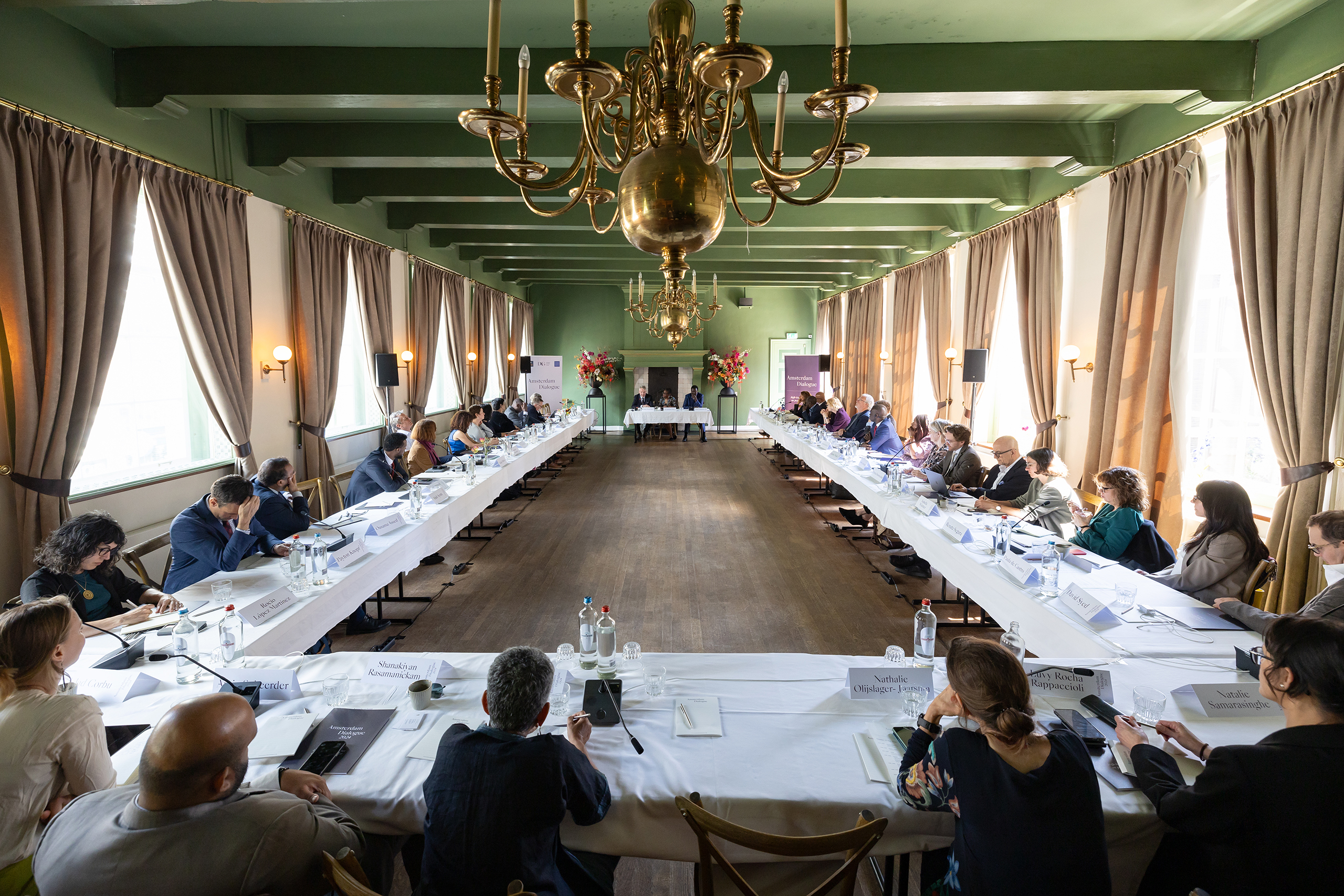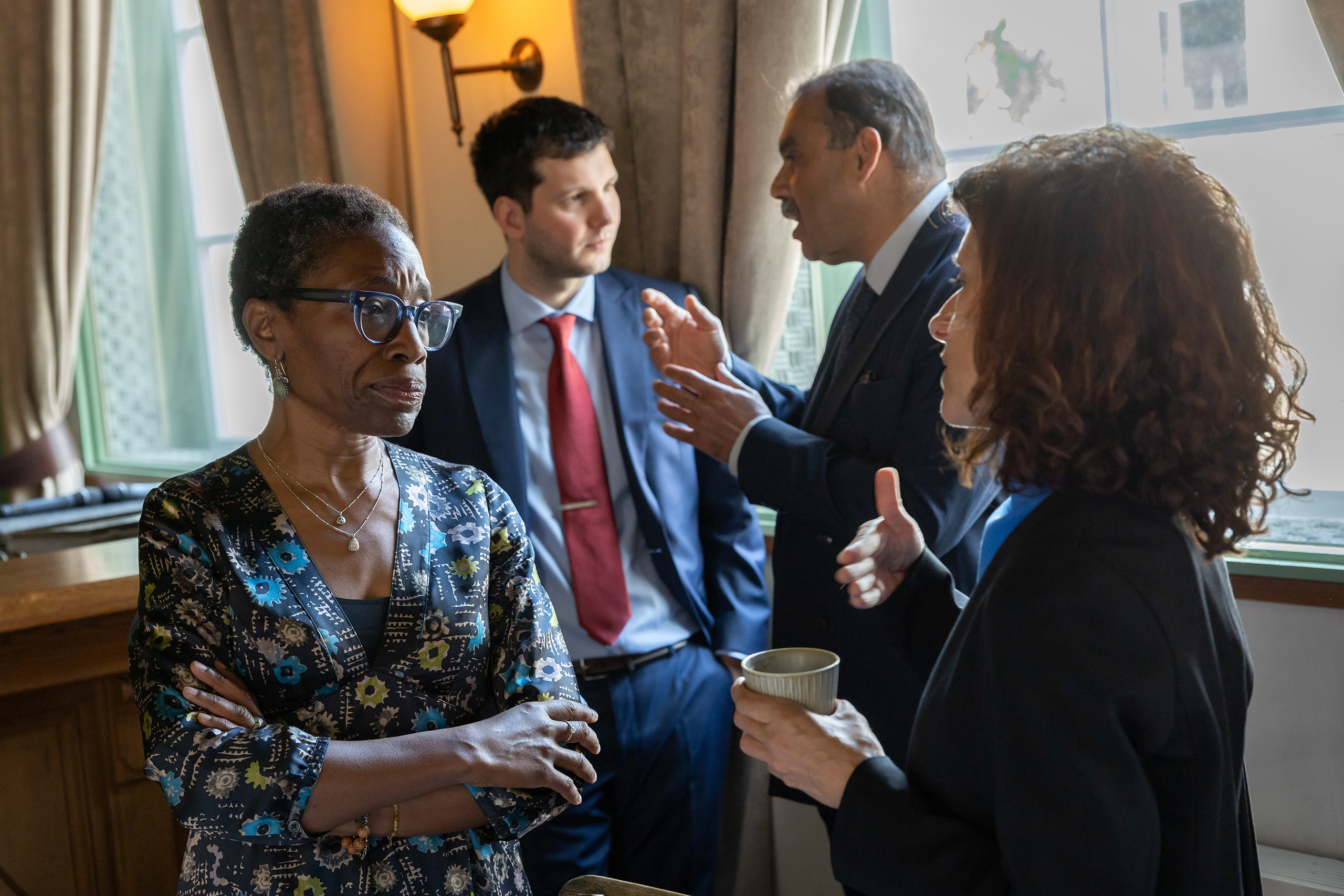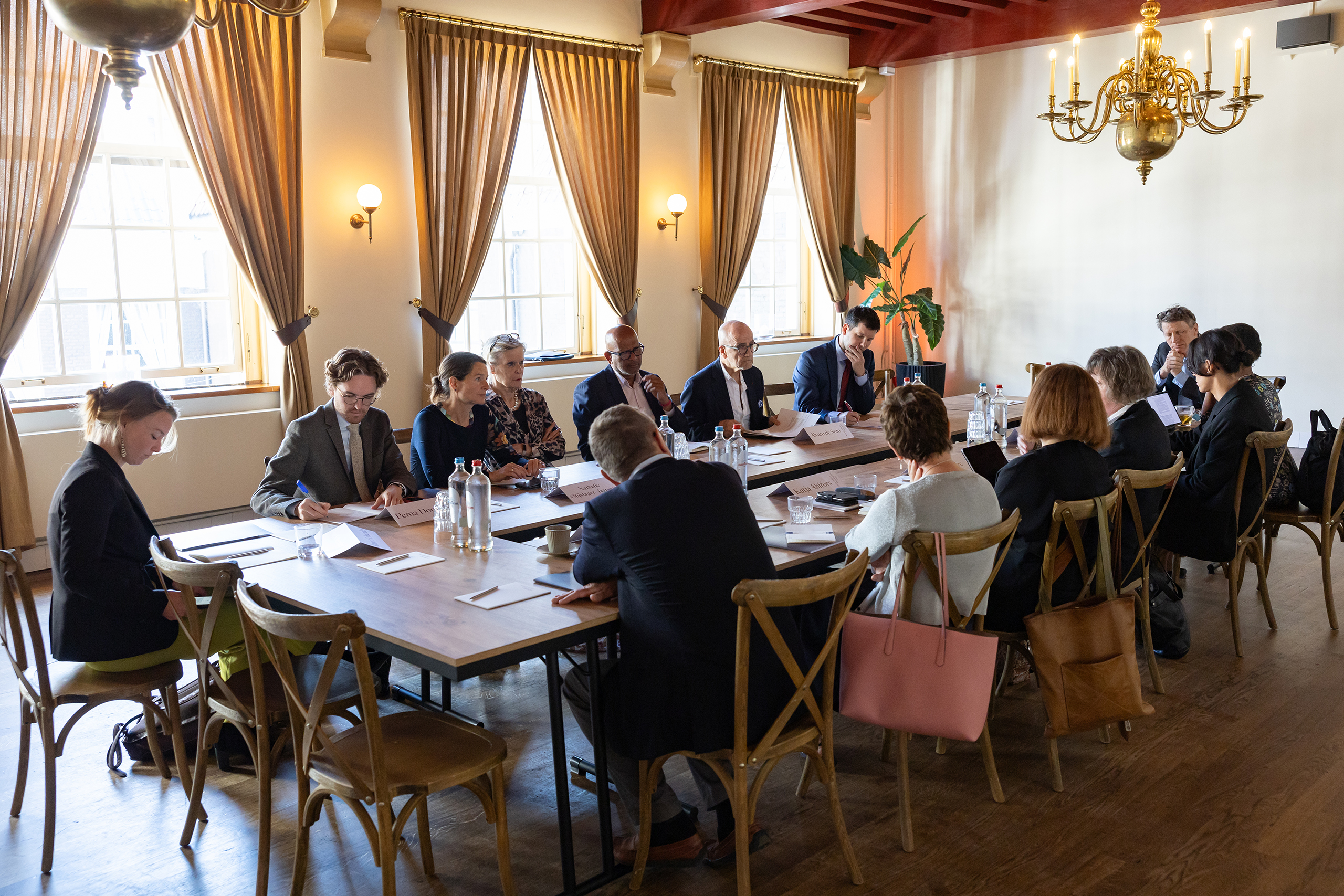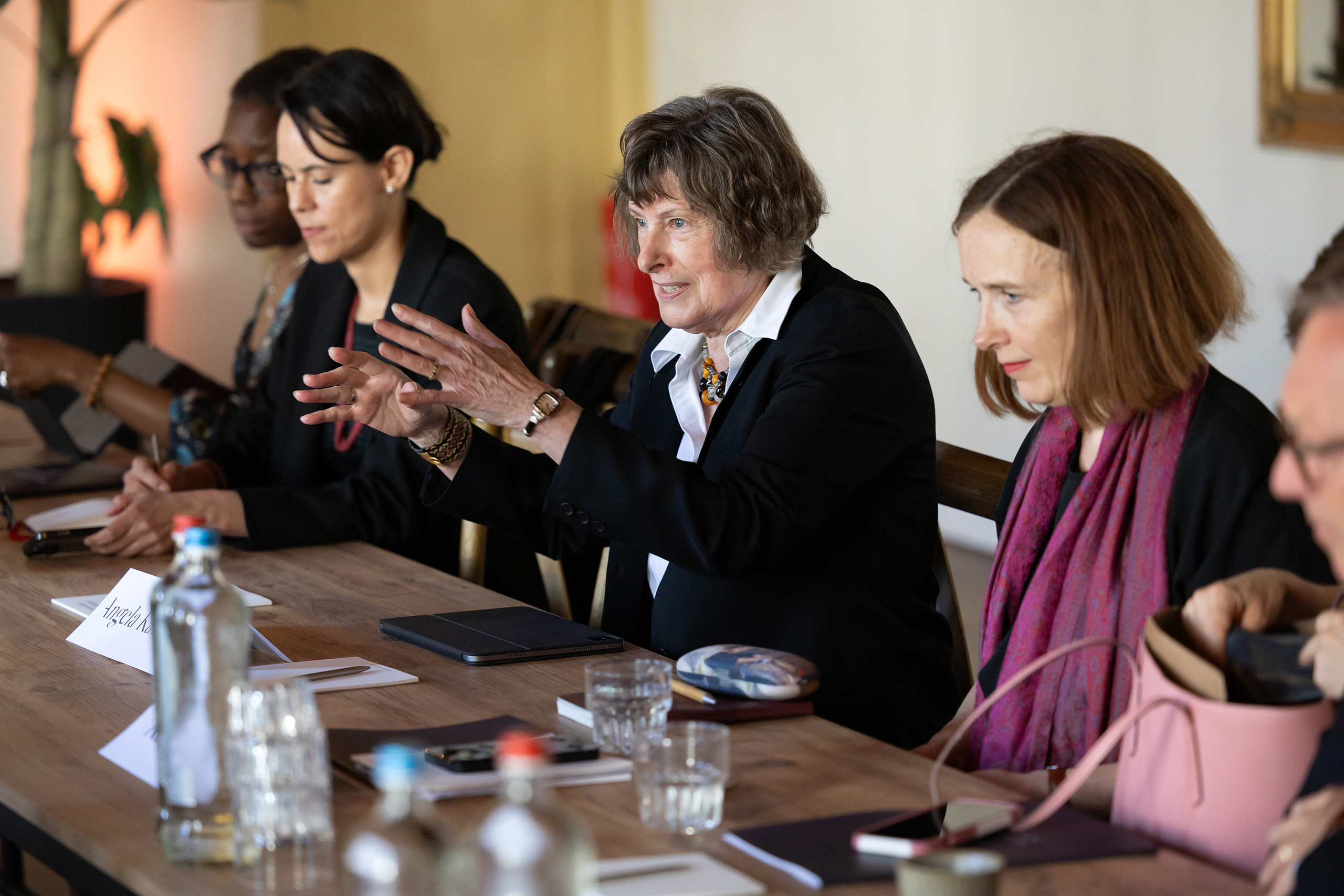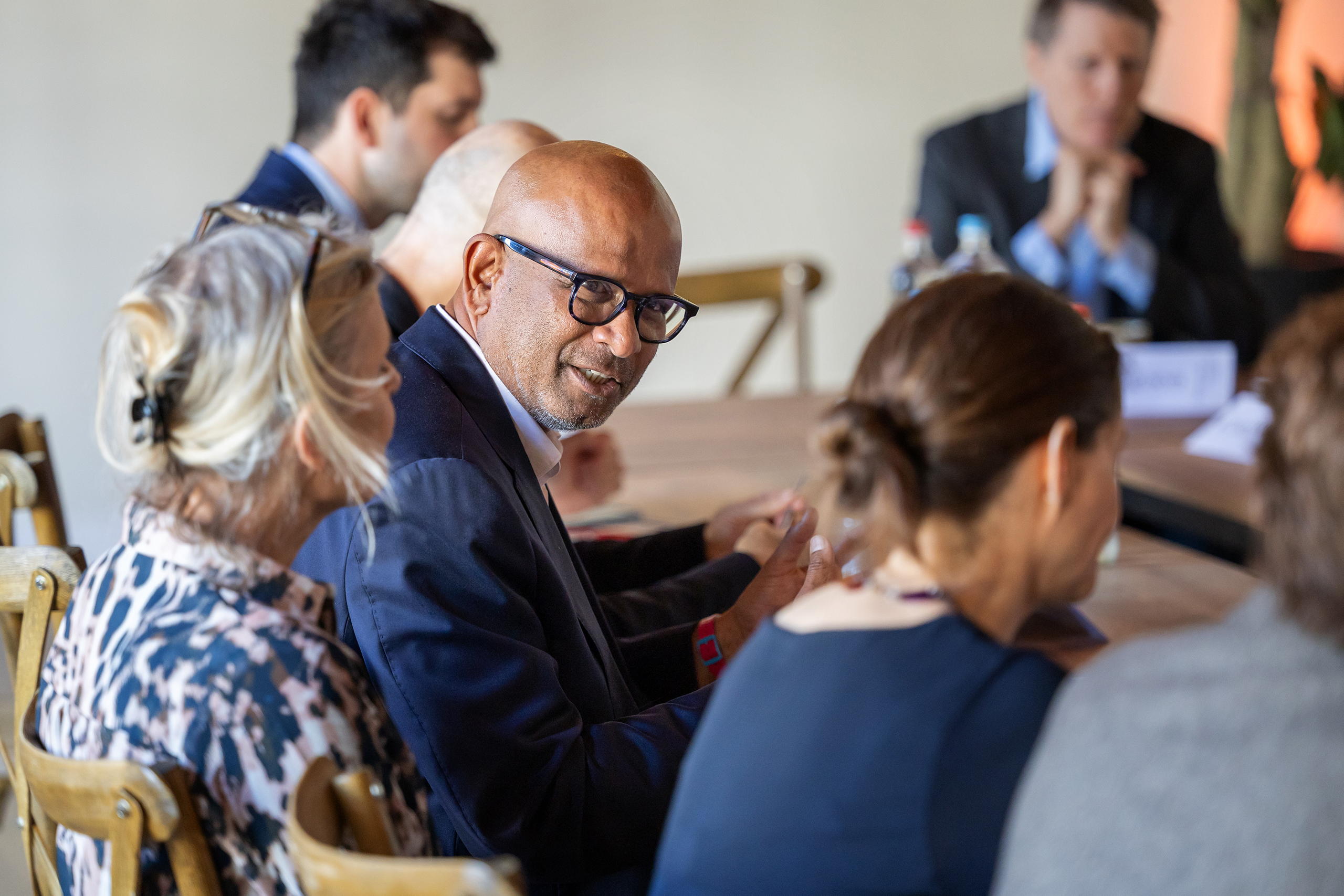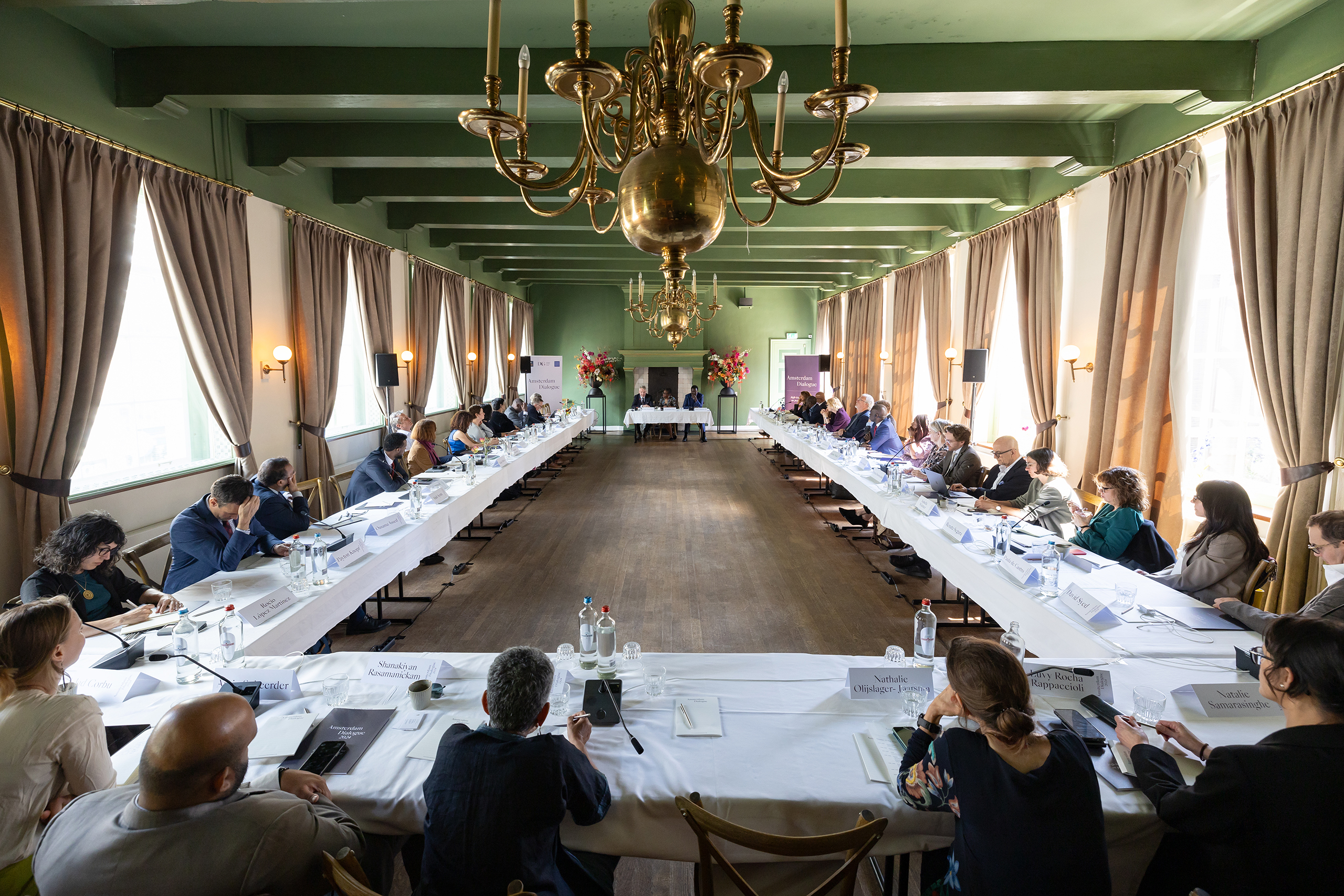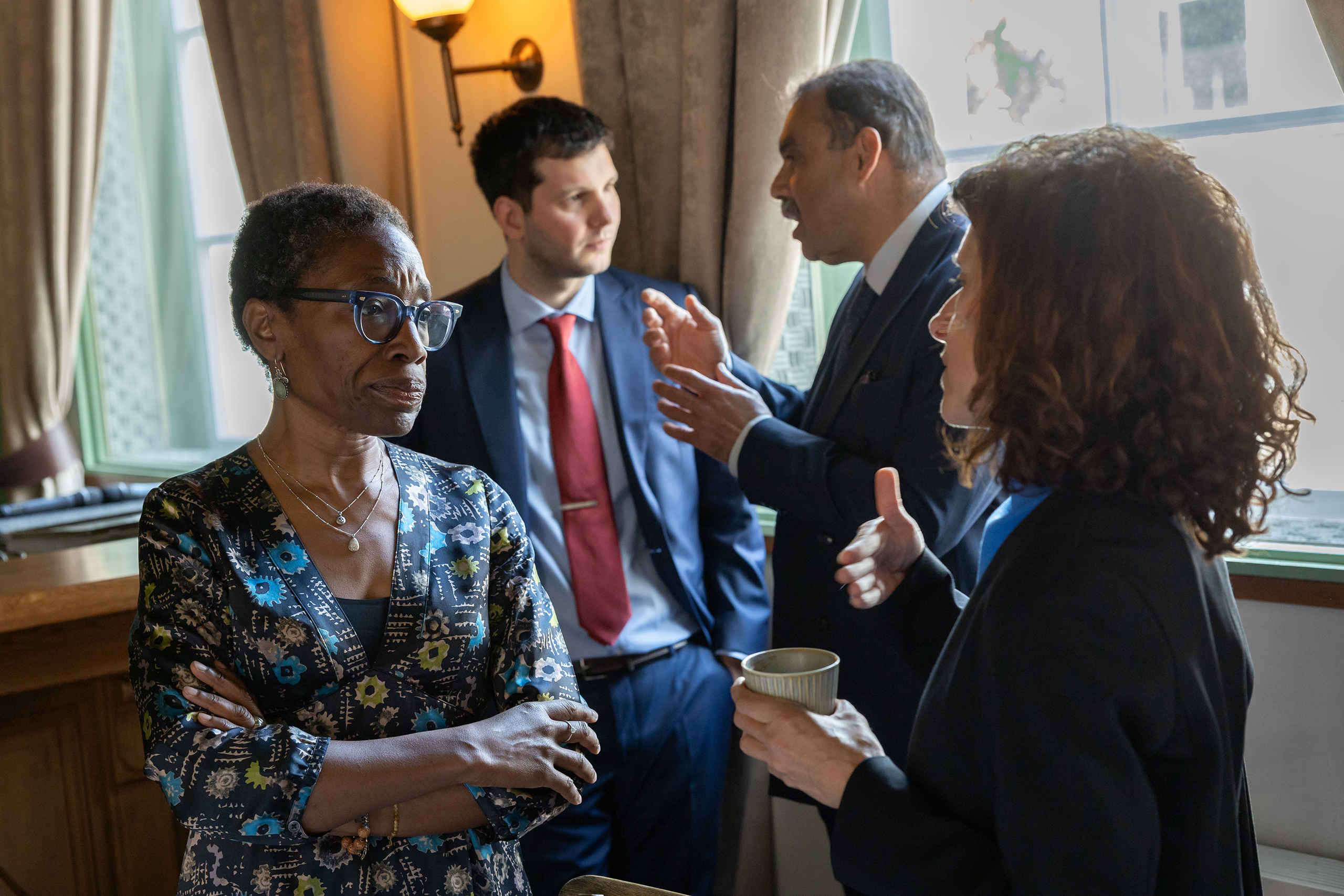Click here to view the conference report
The 2024 Amsterdam Dialogue served as a convergence point for high-level actors from government, global institutions and the peace and justice communities. The Dialogue provided a platform where participants explored the complexities of specific conflict contexts, whilst offering a space to discuss innovative strategies to address the challenges facing peace and justice efforts today.
The discussion on Sudan highlighted a protracted conflict that shows few signs of resolution, with civilians and armed groups increasingly at odds. The panel underscored the urgent need for better coordinated regional and international responses, further emphasising the desirability of stronger accountability measures and more sustainable peace strategies. The complexities of mediation efforts and the worsening humanitarian situation, marked by potentially deliberate starvation tactics, were central themes. Attendees agreed that the lack of accountability for past atrocities, particularly during and since the 2003 genocide in Darfur, contributes to perpetuate the current cycle of violence, making it imperative to address these issues to prevent additional atrocities and establish lasting peace.
Exploring the role of Artificial Intelligence (AI) in the conduct of hostilities, the AI and Accountability session revealed both the transformative potential but also the significant risks associated with the use of AI in conflict settings. The case study of Israel’s use of the Lavender programme in Gaza demonstrated how AI can improve target accuracy and accelerate decision making. Yet it also raised important ethical concerns regarding the potential to misclassify targets as well as the opaqueness of AI-based decision-making. Participants called for a robust legal framework and human oversight to ensure a more responsible use of AI in warfare. They also highlighted AI’s potential to enhance accountability and assist mediation efforts in conflict contexts, provided that transparency and rigorous human judgment are maintained.
The second day of the Amsterdam Dialogue opened with a panel on the ongoing conflict in Gaza and its broader implications for crisis management and conflict resolution. The aftermath of Hamas’ attack on 7 October, the dire humanitarian situation in Gaza – compounded by widespread bombings – and the deepening divisions among all populations involved, were central elements of the discussion. The panel also contrasted the inconsistent international response to Gaza with the situation in Ukraine, emphasising the need for a coherent and inclusive political strategy. The panellists stressed the importance of addressing root causes and restoring authority in Palestine to achieve lasting peace and stability.
The discussion on Mali’s shifting political landscape shed light on the challenges and progress in implementing the Women, Peace and Security agenda. Despite significant obstacles, including entrenched patriarchal structures and pervasive poverty, Malian women have played a vital role in peacebuilding and conflict prevention. Participants emphasised the need for sustainable measures to advance women’s roles, such as targeted financial support and legal reforms. They also highlighted the importance of local ownership and international accountability to ensure the effectiveness of these initiatives.
Sri Lanka’s critical juncture, marked by economic and political challenges, was the focus of another panel. The country’s severe economic crisis, exacerbated by debt, mismanagement and systemic corruption, has undermined democratic governance and stability. The panellists discussed the need for transparency in economic decision- making, particularly regarding negotiations with the International Monetary Fund, and called for a cohesive strategy linking economic development to governance reforms. They underscored the importance of a unifying national narrative to bridge community divides and rebuild public trust.
The situation in Haiti, characterised by escalating gang violence and deepening political instability, was another topic of discussion. The panel highlighted the entrenched relationship between armed gangs and political elites, which complicate efforts to establish stable governance. The role of the international community, particularly with regard to the Kenya-led security mission, was seen as critical but fraught with challenges. The discussion emphasised the need for a multifaceted approach combining local initiatives with international support to address the root causes of Haiti’s crisis and pave the way for recovery.
Finally, the ongoing tensions between Somalia and Somaliland were explored as part of the Amsterdam Dialogue’s last panel, which examined past dialogue efforts, the role of external actors and recent developments. The panel described how the January 2024 Memorandum of Understanding between Ethiopia and Somaliland has shifted the status quo, prompting a reassessment of the situation on both sides. The discussion called for a well-crafted dialogue framework focussing on issues beyond independence, with regional and international support to achieve a durable solution. The panel stressed the importance of constructive engagement and the desirability of attaining a common future of peace to help stabilise the region.
Overall, this year’s discussions highlighted the complex interplay of local and international dynamics in conflict contexts, underscoring the need for coordinated efforts, transparency and accountability to achieve sustainable peace and security.
Agenda day 1, Monday 13 May
11:30 – 12:45 Arrival & Registration
12:45 – 13:00 Welcome
- Angela Kane, Chairperson, Dialogue Advisory Group
12:45 – 13:00 Opening Remarks
- Hanke Bruins Slot, Minister of Foreign Affairs, Kingdom of the Netherlands
13:00 – 13:30 Keynote
- Mohammed Al-Khulaifi, Minister of State, State of Qatar
- Moderator: Ram Manikkalingam, Director, Dialogue Advisory Group
13:30 – 14:00 Break
14:00 – 15:30 Sudan: Internal Conflict & External Intervention
- Mini Minawi, Chairman, Sudan Liberation Movement
- Pekka Haavisto, Member of Parliament, Parliament of the Republic of Finland
- Moderator: Comfort Ero, President & CEO, International Crisis Group
- First Comment: Nazhat Shameem Khan, Deputy Prosecutor, International Criminal Court
15:30 – 16:00 Break
16:00 – 17:30 Artificial Intelligence and Accountability
- Sari Bashi, Program Director, Human Rights Watch
- Moderator: Priscilla Hayner, Expert on Justice and the Environment in Peacemaking, Independent Consultant
19:30 Dinner
Agenda day 2, Tuesday 14 May
09:00 – 09:30 Arrival
09:30 – 11:00 Gaza and Beyond: Challenges and Lessons for Crisis Management and Conflict Resolution
- Sigrid Kaag, UN Under Secretary-General and Senior Humanitarian and Reconstruction Coordinator, United Nations
- Deike Potzel, Director-General for Crisis Prevention, Stabilisation, Peacebuilding and Humanitarian Assistance & Special Envoy for Middle East Humanitarian Issues, Federal Foreign Office of the Republic of Germany
- Mutlaq Al-Qahtani, Ambassador of the State of Qatar to the Kingdom of the Netherlands, Embassy of the State of Qatar
- Moderator: Jeffrey Feltman, Visiting Fellow/Senior Fellow, Brookings Institution and United Nations Foundation
11:00 – 11:45 Break
11:45 – 12:45 Parallel Break-out Panels
Navigating Peace and Security: Women’s Roles in Mali’s Shifting Political Landscape
- Fatima Maiga, Executive Director, Cabinet d’Appui-Conseil ESEN
- Moderator: Leoni Cuelenaere, Former Ambassador, Ministry of Foreign Affairs of the Kingdom of the Netherlands
Sri Lanka: Debt and Democracy
- Shanakiyan Rasamanickam, Member of Parliament, Parliament of Sri Lanka
- Moderator: Ramani Muttettuwegama, Managing Partner, Tiruchelvam Associates
12:45 – 14:15 Lunch
14:15 – 15:15 Dealing with criminal armed groups: Is there a window of opportunity in Haiti?
- Reginald Delva, Executive Director, Alerte Haïti
- Moderator: Renata Segura, Director Latin America and Caribbean Program, International Crisis Group
15:15 – 15:45 Break
15:45 – 16:45 Learning from the Past: Reflections on Previous Somalia & Somaliland Dialogue
- Abdi Aynte, Managing Director, Laasfort Consulting Group
- Mohamed Farah, Executive Director, Academy for Peace and Development in Somaliland
- Moderator: Payton Knopf, Special Advisor, Dialogue Advisory Group
16:45 – 17:00 Closing Remarks
- Vlad Corbu, Deputy Director, Dialogue Advisory Group
- Luvy Rocha Rappaccioli, Chief Programme Manager, Dialogue Advisory Group
